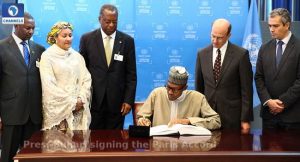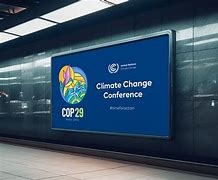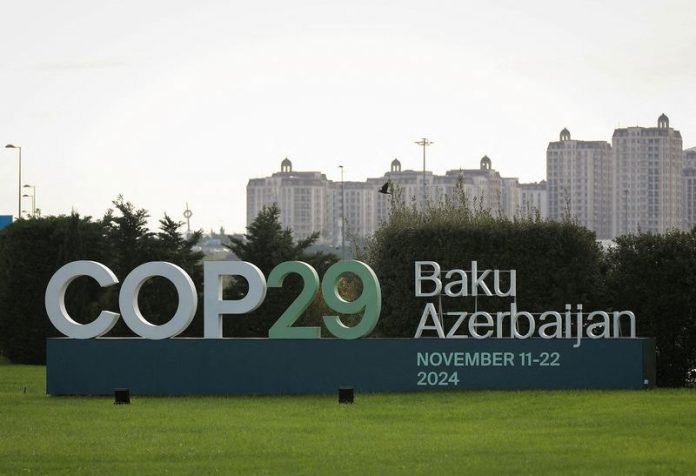Nigeria is facing serious climate challenges—floods that disrupt communities, intense heatwaves, and long droughts that damage our economy and way of life. We can’t afford to ignore these issues. But the big question isn’t whether to act—it’s how. We need smart, effective solutions that protect us from these threats while reducing the pollution that drives climate change. The good news? With the right approach, Nigeria could attract significant international funding to tackle these problems and build a stronger, greener future.

 Look at Sokoto State as an example. Known for its hot, dry climate, Sokoto faces serious environmental pressures. Yet the state is pushing forward by investing in solar energy, moving away from traditional fuels and embracing cleaner, renewable power. This approach isn’t just environmentally friendly—it also provides reliable energy for local communities. Sokoto shows that addressing climate change and building a brighter future can go hand in hand, and it’s a model Nigeria could follow across the nation.
Look at Sokoto State as an example. Known for its hot, dry climate, Sokoto faces serious environmental pressures. Yet the state is pushing forward by investing in solar energy, moving away from traditional fuels and embracing cleaner, renewable power. This approach isn’t just environmentally friendly—it also provides reliable energy for local communities. Sokoto shows that addressing climate change and building a brighter future can go hand in hand, and it’s a model Nigeria could follow across the nation.
 Imagine Nigeria tapping into a massive $1.2 trillion global fund for “green” projects in emerging economies. These projects could range from renewable energy plants, like those in Sokoto, to flood-resistant infrastructure. But there’s a challenge—many of these projects are still only ideas on paper, not ready to start. And most international climate funding still focuses on reducing emissions rather than helping countries like Nigeria adapt to the climate impacts we’re already facing.
Imagine Nigeria tapping into a massive $1.2 trillion global fund for “green” projects in emerging economies. These projects could range from renewable energy plants, like those in Sokoto, to flood-resistant infrastructure. But there’s a challenge—many of these projects are still only ideas on paper, not ready to start. And most international climate funding still focuses on reducing emissions rather than helping countries like Nigeria adapt to the climate impacts we’re already facing.
So, where does Nigeria stand, and how can we make the most of this opportunity? Nigeria has taken some important steps, like signing the Paris Agreement, which commits us to reducing emissions, and creating a national climate policy. But there’s still a big gap between having these plans and securing the funds to bring them to life, especially for regions hardest hit by climate impacts.
Here’s how Nigeria can turn things around and access more climate funding:
First, we need more “shovel-ready” projects—projects that are fully planned and ready to go, like flood-resistant roads or clean energy systems that communities can rely on. Sokoto’s solar efforts show what’s possible when a project is both prepared and impactful. The more Nigeria has these types of projects, the more attractive we become to international investors looking for stable, sustainable investments.
Next, Nigeria’s private sector has a role to play. Imagine if our telecom and agricultural companies started making their businesses more climate-resilient. Investors are eager to support sustainable projects, and by involving local businesses in climate action, we could attract more funding and reduce the burden on the government.
To bring in this funding, Nigeria must establish a strong accountability system to manage climate funds effectively. International investors need to feel confident that their contributions will go directly to real projects—not be diverted elsewhere. Building that trust means implementing clear, transparent systems that track and report spending, showing funders we’re serious about using funds responsibly.
Politicians also need to recognize that misusing funds meant to protect communities is shortsighted. By directing money where it’s truly needed—toward reducing climate risks and improving people’s lives—they can secure lasting support from their citizens. When people see real improvements in their environment and feel safer in their communities, they’re more likely to stand behind leaders who deliver results. This approach doesn’t just build immediate trust; it establishes a strong track record that can support politicians’ future ambitions, proving that integrity and action can secure both progress and political longevity.
As Nigeria prepares to engage with the global community at COP29, we have a unique opportunity to push for more international climate funding focused on adaptation. By taking the lead, Nigeria can advocate for greater support for low-income countries, ensuring that nations facing severe climate impacts get the help they need to protect their communities.
With the right projects, strong partnerships, transparent accountability, and a proactive stance at COP29, Nigeria can turn its climate challenges into powerful opportunities for progress. Together, let’s follow the lead of states like Sokoto and work to make Nigeria’s climate story one of hope, progress, and resilience. The time to act is now, and by taking these steps, Nigeria can secure a greener, safer future for all its people.
Share your story or advertise with us: Whatsapp: +2347068606071 Email: info@newspotng.com






